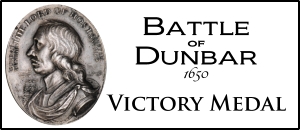 John Rosse was my 8th-great grandfather on the Crosby side. In 1650, during the Third English Civil War, John Rosse fought at the Battle of Dunbar. The victorious troops each received a victory medal for the battle. What John Rosse received instead forever changed my DNA, maybe.
John Rosse was my 8th-great grandfather on the Crosby side. In 1650, during the Third English Civil War, John Rosse fought at the Battle of Dunbar. The victorious troops each received a victory medal for the battle. What John Rosse received instead forever changed my DNA, maybe.
The Battle of Dunbar was fought 3 September 1650, during the Third English Civil War, in the coastal town of Dunbar, Scotland. The battle pitted Oliver Cromwell’s Parliamentarian army against a Royalist Scottish army, that was loyal to King Charles II (King of Scots). Initially the Scots had the upper hand in the battle, but a tactical error gave way to a victory by Cromwell. The Scots broke ranks and fled with Cromwell’s army in pursuit. The two sides recorded very different numbers with regards to casualties and prisoners, but — by all accounts — it was a very bloody battle. Cromwell reported 3,000 Scots were killed with 10,000 prisoners taken. The Scots reported that only 800-900 were killed with 6,000 taken as prisoner.
Following the battle Cromwell decided to march on Edinburgh, which was undefended after his victory at Dunbar. Worried about a rescue attempt to free the Scottish prisoners, Cromwell ordered a forced march south, toward England. Eight days after the battle at Dunbar 3,000 prisoners arrived at Durham Cathedral, where they were held. Upwards of 2,000 men died during the forced-march south.
John Rosse was one of the 3,000 who survived both the battle and the march; and so did his brothers: Gilchrist and Finlay. The Parliamentary government found itself in a dilemma. Keeping 3,000 prisoners of war (POWs) would have been very expensive and releasing them would mean they could return to the Scottish army and again do battle. However, a third option presented itself: selling the prisoners as forced labor.
And so, John, Gilchrist and Finlay were packed aboard either the ship Unity or John and Sara and taken to Massachusetts were they were sold into servitude. Many of the prisoners were taken to the Saugus Iron Works, in Lynn, MA. Some others were sent to northern MA (now known as Maine) to work in saw mills. And some were sold to local merchants and businessmen. The Rosse brothers ended-up in Ipswich, Essex County, MA.
The forced servitude was not a life long plight. By about 1660 all the brothers had fulfilled their sentence and they married and their families have continued to flourish.
Had the Scots not made that fateful tactical blunder in 1650: …
… John Rosse would never have been forced to go to Massaschusetts, He would have likely never met Mary Haggett, whom he married 1 January 1661/62. Likewise, Sara Ross (the name was Americanized shortly after his arrival) would have never married Willaim Hoar, and so forth. My family tree, and DNA would be very different if the Scots prevailed at Dunbar.
Or so it is thought.
All of what I have written so far makes a wonderful tale. And it may be just that, a tale; a fanciful yarn. Folk lore told, and retold, over the generations until its origin is long forgotten. With the advent of the Internet came the ability for information to spread farther and faster than it was ever possible at the dinner table.
So, why write about the Rosses and the Battle of Dunbar if it might not be accurate? Well, because the story just may be accurate. I can’t just write-off the story as being false, just as I can’t accept it at face value. What is needed is research! Although researching people alive in the 17th century can be daunting, it certainly isn’t impossible.
What is known:
1. John Ross, born about 1640, of Ipswich, MA is my 8th-great grandfather. He married Mary Hagget (Daughter of Henry and Ann Hagget) on 1 Jan 1661/62.
2. John’s daughter Sara (my 7th-great grandmother) married William Hoar Jr. (Is it just a coincidence that John is supposed to have arrived on the John and Sara and that his daughter’s name is spelled without the “h” at the end?)
3. Killicross Ross of Ipswich married Mary Galley. Mary was the daughter of my 9th-great grandparents, John & Florence Galley. In the old records of Ipswich and Essex County, Killcross’ first name is spelled a variety of ways, one of which is “Gilcrest”. The rules of spelling in the 1600s were not as strict as they are today and, given that Killicross would have had a thick Scottish accent, he was likely difficult to understand.
4. Fennell/Funel Ross also lived in Ipswich at the same time as John and Killicross. An additional alternate spelling of his name is listed as “Finlay”.
What is not known:
1. Is my John Ross the same John Rosse of the Dunbar prisoner ship? Compounding the question is the presence of three men named John Ross on the ship.
2. Were John, Killicross (Gilchrist) and Fenell (Finlay) brothers?
3. Did John, Killicross (Gilchrist) and Fenell (Finlay) arrive together aboard the same ship?
4. Where did the three Rosse’s originate from in Scotland?
5. Do Scottish military, birth or baptismal records exist for the three?
Fortunately, I’m already familiar with the resources available for Massachusetts during the 1600s. However, this will be my first attempt at doing research in Scotland (via the Internet, not in person). Some quick searches of the Internet have uncovered passenger lists for the Unity and the John and Sara. Unfortunately, I have already noticed that some of the web sites contradict each other. But at this point I will collect all the information, with the sources, and then set about determined the veracity of the data and decide on the next steps.
One factor that should make this research a little easier, is that I have three people to research. A dead end for John might be overcome by researching Finlay or Gilchrist.
Either way, I hope I am able to either prove or disprove the Dunbar tale. At the very least I will learn more about 1600s Scotland and the civil wars of England.
My lineage to John Rosse:
John Rosse > Sara (Ross) Hoar > Abigail (Hoar) Grover > Rebeckah (Grover) Elwell > Rebecca (Elwell) Crosby > Edward Crosby III > John Crosby > John A. Crosby > Roy Crosby > Maurice Crosby > Me
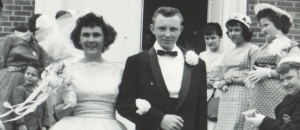
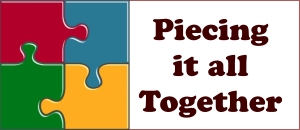
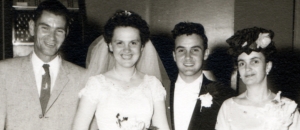

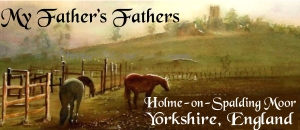
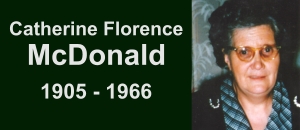
I am a descendent of Kilicross Kilicress or Gilchrist Ross. I would be very interested in what you discover.
I’f you are descended from Killicross’ wife Mary (Galley) then we are distance cousins. Mary’s parents are my 9th-great grandparents and her sister (Dorcas) is my 8th-great grandmother.
Here is an article you may find interesting… http://epluribus.me/2011/12/03/blacksheep-sunday-fined-20-shillings-for-that/
Dorcas is a famous black sheep in my tree. She was convicted for being a witch in 1692.
Moe
I am a descendent of Fennel Ross….and face the same challenges discovering the history of my Ross connection. Any luck so far?
None as of yet!
I am from a line of Daniel Ross 1613-1683
Mary Osborne Gilchrist 1613
both of Dunbar, East Lothian, Scotland
and ending up in Massachusetts Bay Colony, British, Colonial, America
supposedly.
A son by the name of John Ross who was born 1635 in Ayrshire, Scotland
and died in Wenham, Essex, Massachusetts, USA
married to Mary Barrett 1645-1725 of Charlestown, Suffolk, Massachusetts, USA.
daughter Mary Ross 1677-1750 Middlesex, Virginia who married Richard Melton.
In an attempt to ‘just see’ I typed: Mary Osborne Gilchrist 1613 in my Google search bar and up came your post http://epluribus.me
now, I dont know what to think about my research tree on Ancestry.com
Just found your comment on your own article that I had saved to my Dorcas Hoar’s profile on ancestry. Mary Galley and Killicress (or Gilchrist) Ross are my 7th great grandparents. I am still on the hunt to determine the Ross line down to Daniel Ross, (Rev. War soldier) my 4th great grandfather. There are so many Daniels recorded at Ipswich that it is hard to differentiate them. My best guess is that Abigail and Jonathan Ross are his parents. and then on back to Gilchrist. I am quite sure of my Daniel because of the Pension Records. Have you been to Ipswich to look at the records? Would it be worth the time and expense to go there, and would I learn more than I can by reading the online records? Also, do you have DNA links to this Ross line? Thanks!
I am supposedly a descendant of John Ross and Mary Barrett of Wenham, MA. Her father was James Barrett who married Hannah Fosdick. (I am descended from her father Stephen Fosdick through another line as well). In James’ will and Hannah’s will the Ross name is mentioned as legatees of one sort or another. I believe it is possible that the name Mary Haggett, may have been misread from Mary Barrett. My line goes from John Ross and Mary Barrett to David Ross and Sarah Covell to Isaac Ross and Rachel Harendeen who married in Glocester, RI. Their daughter Abilene Ross married David Kelley. David was a Revolutionary War soldier and lived in and around Glocester, RI.I had been hunting for his wife’s name for years and just a few days ago a DNA match on Ancestry gave me the information. I already had a line of descent from another Scots prisoner, George Darling, whose great granddaughter, Elizabeth Darling married James Fosdick a 2nd gr grandson of the above named Stephen Fosdick. I am also descended from at least two of the free workers at Saugus, John Vinton, one of the finers, and William White who was probably hired to build the furnace or make the brick to line the furnace and had a conflict with the manager and left.
Gilcrist Killicross Ross was my 7th great-grandfather (John Ross> Jabez Ross> Kneeland Ross> Porter Ross> Stephen Dyre Ross> Edward Porter Ross> Beford Nason Ross> Earle Bedford Ross> Neil Ross
Gilcrist, John and Finlay were brothers. All of them, along with their father Daniel, seemed to have shared the same fate – taken prisoner in war and transported to New England to be sold into indentured service.
I have reason to believe that their mother, Mary, was eventually able to rejoin some or all of her family in Ipswich MA and died there in 1713 at the age of 100.
I am new to researching the family and have found that the Scottish Prisoners of War website is a great source of information.
On 3 Sep 1650, the English defeated the Scots at the Battle of Dunbar. There weredead, 10,000 captured, andmore escaped. After being captured, they were marched from Durham to Newcastle. They were given very little to eat. Between the march and lack of food, many died along the way. Disease was rampant. Some men were shot because they either could not or would not march. When they reached their destination, they happened upon a field of cabbage.They ate all of it, which of course made them even sicker than they already were.